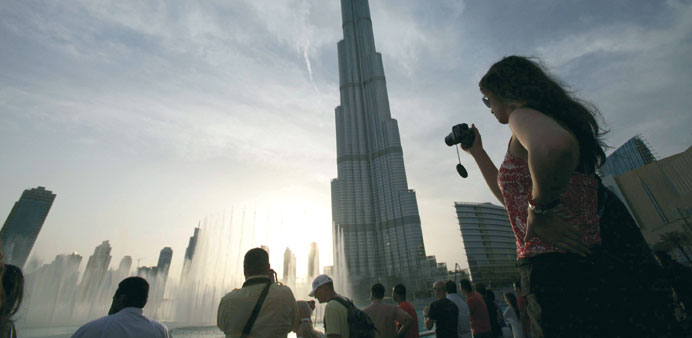The Dubai builder of the world’s highest tower, the Burj Khalifa, hinted it might develop an even taller skyscraper and two conglomerates outlined grandiose real estate plans, underscoring recovery in the emirate’s bombed-out property sector.
The plans would have appeared fanciful three years ago, when a crash in the inflated real estate market triggered a corporate debt crisis and a slew of company restructurings.
But Dubai, home to an archipelago of man-made islands and an indoor ski slope in one of its shopping malls, staged a dramatic economic recovery last year, partly because of a tourism boom.
Tourist arrivals grew 10% and hotel revenue rose 19% in the first half of 2012. Some state-linked companies have been working through their debt loads while some property prices have started to rebound.
“Maybe we will try to build something a little taller,” said Mohamed Alabbar, the chairman of Dubai’s largest developer Emaar Properties, which built the 828-metre Burj Khalifa.
The tower, which dominates Dubai’s spectacular high-rise skyline, was opened in 2010 but is set to be overshadowed by the 1,000-metre Kingdom tower under construction in the Saudi city of Jeddah.
“Dubai needs another tall building. Dubai is only about 30 years old. So we have a lot of time and lot of investment left, Alabbar told journalists at a conference.
Meydan Group and the Sobha Group, two Dubai conglomerates, separately announced a joint venture to develop a major leisure, retail and residential complex near the city’s downtown area.
The complex will include a 350,000sq m water park, a 7-km lagoon, retail spaces, leisure and sports attractions as well as 1,500 villas.
It will be the cornerstone of a huge urban development plan announced last November by Dubai’s ruler Sheikh Mohammed bin Rashid al-Maktoum, which included the largest shopping mall in the world, a park 30% bigger than Hyde Park in London, and over 100 hotels.
Other grandiose projects announced recently include a replica of the Taj Mahal and billion-dollar theme parks including one modelled on the India’s so-called “Bollywood” film industry.
Saeed Humaid al-Tayer, Meydan’s chairman and chief executive, said the complex would be funded through company capital, investors paying for off-plan property and bank loans.
“We have some financial institutions that are happy to work with us,” he said.
Residential property prices have boomed in the past year, according to the latest REIDIN residential sale index showing a 17% rise for villas and an 18% increase for apartments.
The comeback in Dubai’s real estate market is mainly due to speculative investors pushing property prices higher and Alabbar said that “flipping” - the practice of buying speculatively for quick resale, needed to be controlled.
“There is very strong demand in Dubai. I see this continuing provided we control this flipping situation,” he said.
But he did not expect another bubble in Dubai’s real estate market.
“Banks are being very cautious and companies are cautious,” he told reporters.

